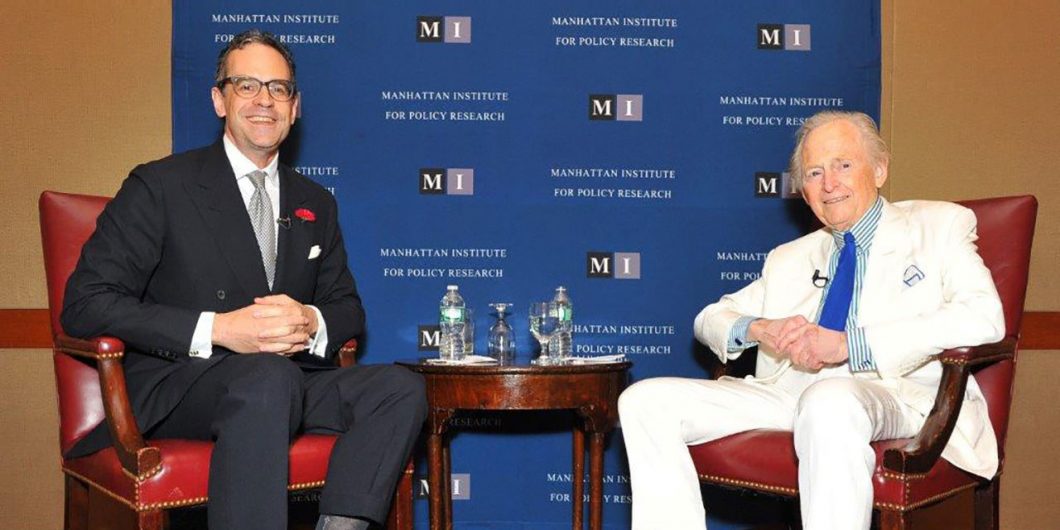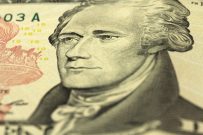Soft Landing
Editor’s Note: This essay is part of a Law & Liberty symposium on Michael Anton’s After the Flight 93 Election.
Like Tom Paine, Michael Anton wrote an essay that said what needed to be said at a moment when others were hesitant to say it, and he sparked—well, not a revolution that introduced a new order of the ages, or even the movement that elected Donald Trump, but at least a firestorm of sorts in conservative circles that still smolders. In September 2016, it seemed every major conservative writer and journal was “Never Trump,” effectively ceding the election to Hillary Clinton if not outright endorsing her candidacy. Anton blasted conservative complacency in the face of an increasingly radicalized Left and praised Donald Trump’s superior prudence in recognizing the need to restore American sovereignty on matters such as immigration, trade, and foreign policy. Mainstream intellectual conservatism had failed, at least in the battle for public opinion, and it was time to confess that fact and try something new.
In After the Flight 93 Election: The Vote that Saved America and What We Still Have to Lose, Anton republishes the famous essay and his contemporaneous reply to his critics, adding a preface and a revised version of an essay published last year in The New Criterion designed to add a “positive vision” to supplement his jeremiad, “an account of America, how and why it is good, whence that goodness derives, and why it deserves to be conserved.” More precisely, he undertakes to supply “a theory of justice that is both logically coherent and distinctively American.” He begins with Aristotle, curiously, apparently to establish that one should take one’s bearing from human nature, that social science cannot be too exact in its aspirations, and that there is a distinction between securing the needs of mere life and achieving the desires of a good life. But this is mere background to the central story, which is an account of natural rights, the social compact, republican government, federalism, separation of powers, and limited government, that accords with, though does not acknowledge, Thomas West’s Political Theory of the American Founding. Like West, Anton builds on Locke while importing republican virtue and the family as useful to make the system work. Locke is the picture, Aristotle the frame.
Anton sees himself as an essayist, not a theorist—his hero is Tom Wolfe, he explained in an interesting tribute to the late author last year—so apparently he does not feel obliged to work through the problem of drawing on both ancients and moderns, preferring “to caution against making more of those differences than is warranted.” He notes the difference between grounding a theory on natural law and starting from revealed commandments, though is sanguine that “there is no inherent conflict between the demands of faith and the requirements of reason in the political realm.” There is of course a long and politic tradition of finding what Jefferson called the “harmonizing sentiments” in the various philosophical and religious sources of the American experiment, but that is not the same thing as establishing theoretical coherence.
If Anton really wishes to develop a theory, he needs to name names and make arguments, facing difficult questions such as whether Aristotle’s account of the polis is compatible with limited government or whether religious liberty can be more than “articles of peace” between believers and non-believers. If one’s aim is harmony, then usually one is well-advised to keep theory at arms-length. Coalitions are built through compromise, a practical, not theoretical, virtue. Clarity often divides, though it is important to be clear when to compromise and when to fight.
As in his original essay, Anton is keenest in describing his opponents, though here, too, it might help to name names (besides John Rawls and Herbert Marcuse) and dispute what they actually write. His account of the Progressives is more nuanced than is sometimes the case in the Claremont-Hillsdale circle, for he notes that many achievements of the era—“strengthening education at all levels, supporting morality and the family, bolstering the work ethic, immigration and civil service reform, trust-busting to enable fair competition, calls to national service, and the creation of the National Park system”—could be defended on Founding principles, without the Progressives’ pernicious critique of the Constitution or their abandonment of human nature as a standard. As for contemporary neo-progressivism, he insightfully divides it into Rawlsian liberalism and New Leftism, seeing the latter as incorporating the former but replacing concern for the “least-advantaged” with vociferous demands for “group rights” and vindictive accusations of hereditary guilt, manifestations of a “spiritual sickness, the self-loathing and existential despair, with which it has infected the formerly confident and capable West.”
Again, one wishes he would dig deeper. How, more precisely, does one sort out the good from the ill in the reforms of the early Progressives? Which was granting tenure to university professors? Replacing history with social studies in the primary school curriculum? Both were educational reforms pressed by John Dewey. Was race-based immigration reform in the 1920s defensible? As for Rawls, while his difference principle may have allowed Silicon Valley entrepreneurs their huge fortunes with a clear conscience on the grounds that cheap personal computers, the internet, and social media bring extensive information and communicative capacity to the least advantaged, the principles behind A Theory of Justice—that the “lottery” of talents means no one has ownership over his own talents, that society can engineer its structure without regard to individual integrity—are defenseless against the radicals, whose eagerness to expropriate and whose readiness to condemn “structural injustice” follow Rawlsian logic without his residual individualism. Isn’t the “spiritual sickness” Anton diagnoses the same old nihilism that has plagued the West now for more than a century? When Anton writes, “it is now impossible for any educated person to say, on the basis of traditional religious faith or a shared understanding of permanent human nature, that anything human can be good or bad,” does he mean that majority opinion is against such a person, or that we have no access to an education that can ground such claims? Can nihilism be overcome without it? Is a proper education enough?
That Donald Trump expresses no consistent ideological doctrine has actually been a boon to conservative thought, or ought to be. In the moratorium on the expansion of leftist “political correctness” resulting from the outrageousness of his outbursts, we might assess the failings of the past and develop focus for the future. Given the basic soundness of the case for free markets, what are their limitations? Have conservatives come to terms with the economic near-collapse of 2008, or the continued growth of the federal deficit? Why does socialism seem to have captured the imagination of many of our young? Why did conservatives lose the debate over “same-sex marriage”—or, if the issue was stolen by the courts, where is the outrage? How, and how far, should we accommodate ourselves to the change in culture that it implies? What is the extent of American responsibility in the world at large and what are the limits on our power? How does this relate to our understanding of ourselves as a nation and hence our policy toward immigration? Does the rise of Islam (and the confusion of Christianity) constitute a challenge to American identity and self-government, or will all religious change be readily accommodated by our constitutional system? Can these questions even be addressed in modern universities, or does an orthodoxy of educated opinion preclude their being asked?
To ask these questions is not to demand some new conservative orthodoxy of answers; liberals might need “a theory of justice,” but I think Anton said better in his second 2016 essay, the final chapter here, that “What, specifically, is good in a political context varies with the times and with circumstance, as does how best to achieve the good in a given context.” This observation can be Aristotelian, not merely pragmatic, when coupled with sound morals and staunch constitutionalism, as I think Anton means it to be. It is good to be reminded by After the Flight 93 Election about the seriousness of political choice and the dangers of complacency and cynicism. As an essayist, Anton would do well now to turn to the questions I raise above or to others like them. As a theorist, one can always do well to return to Aristotle and to Locke.


